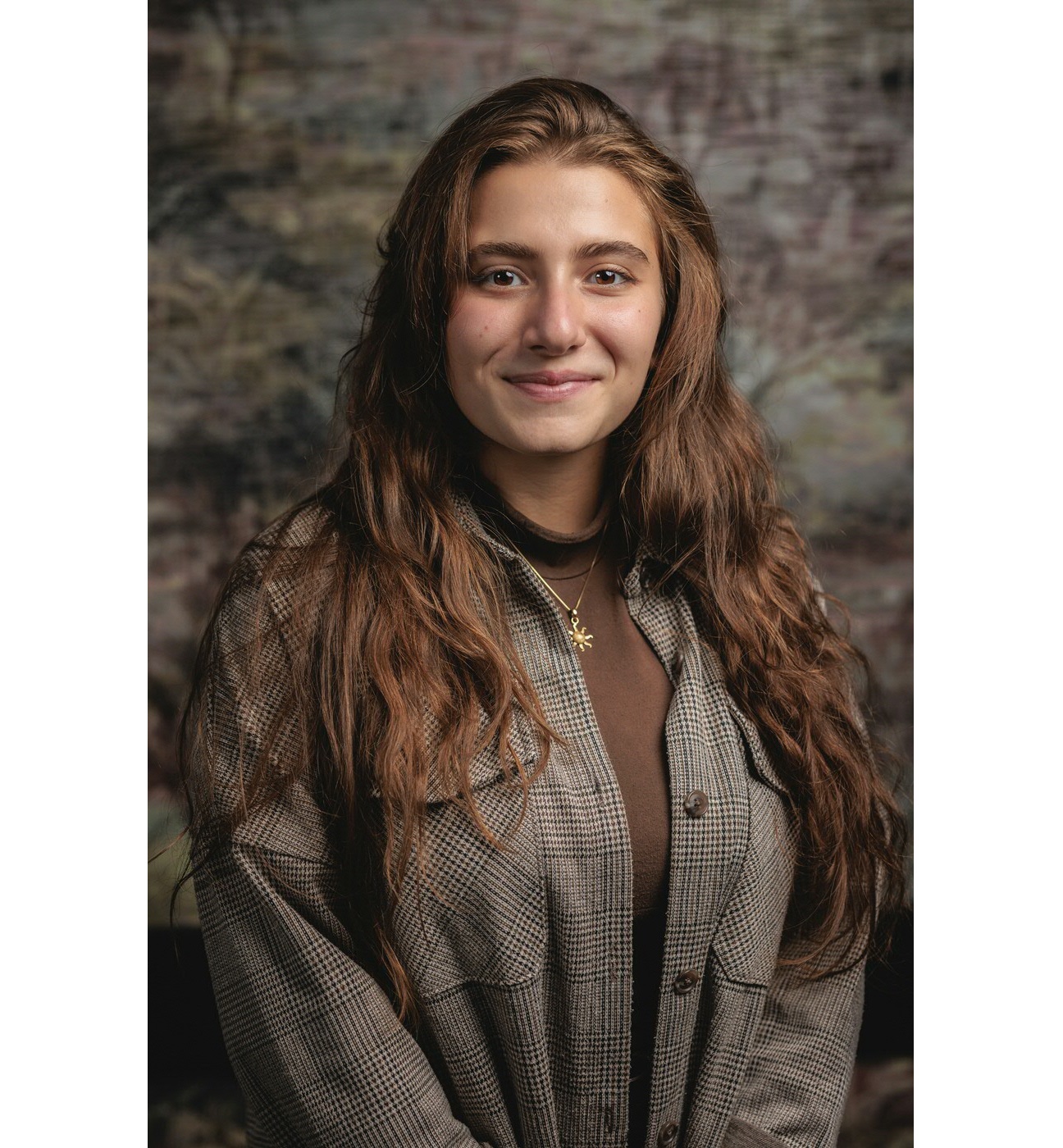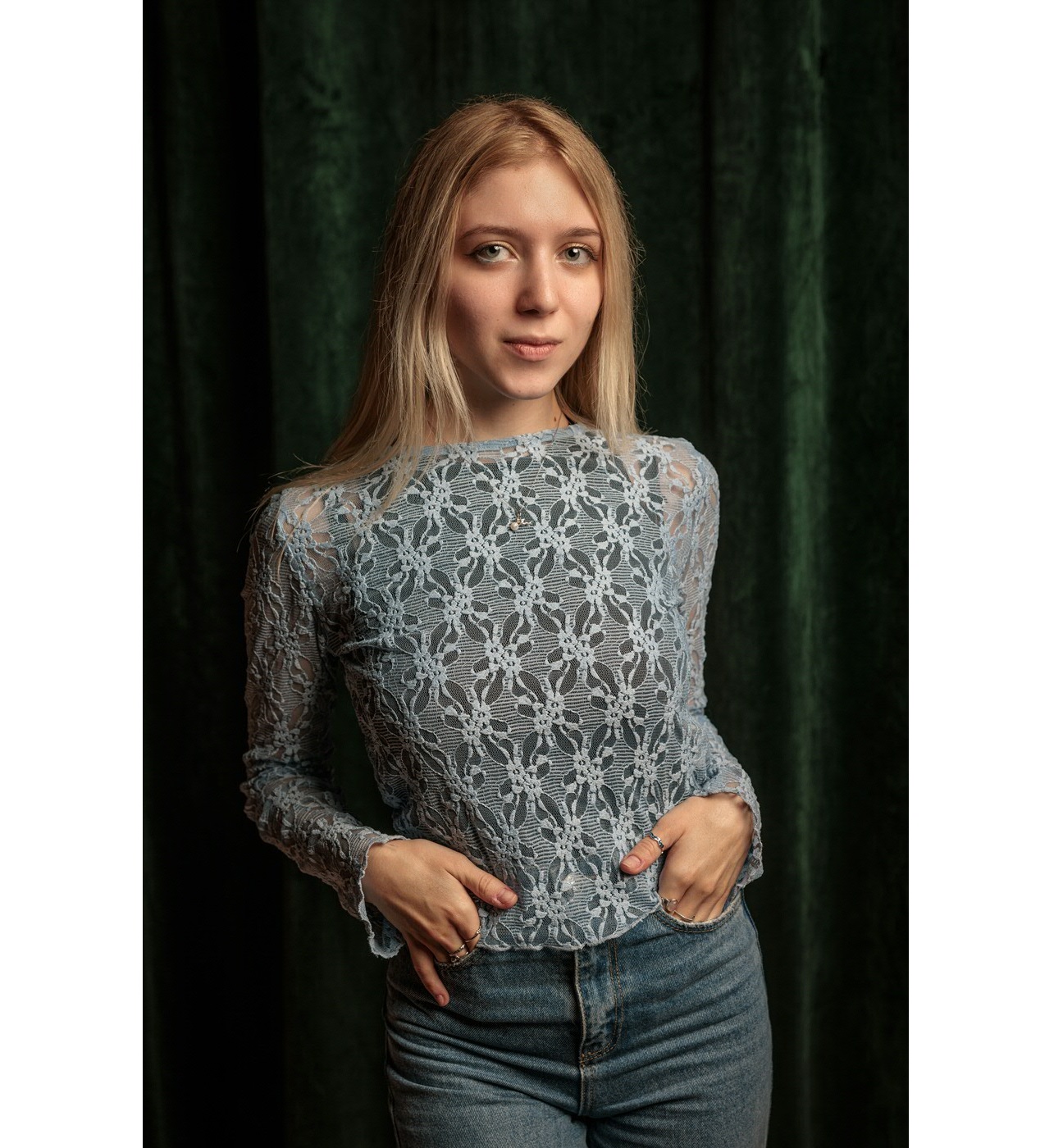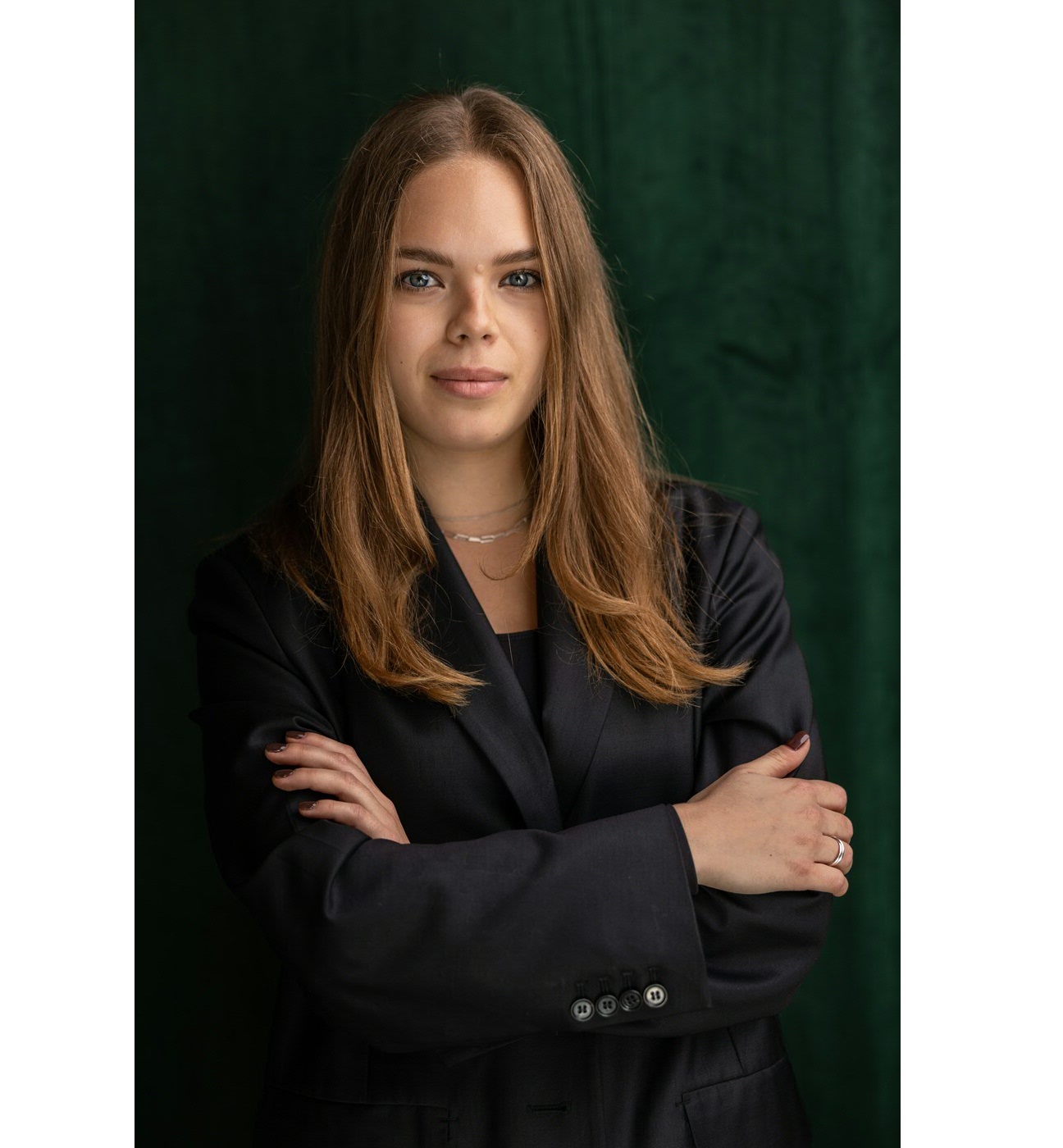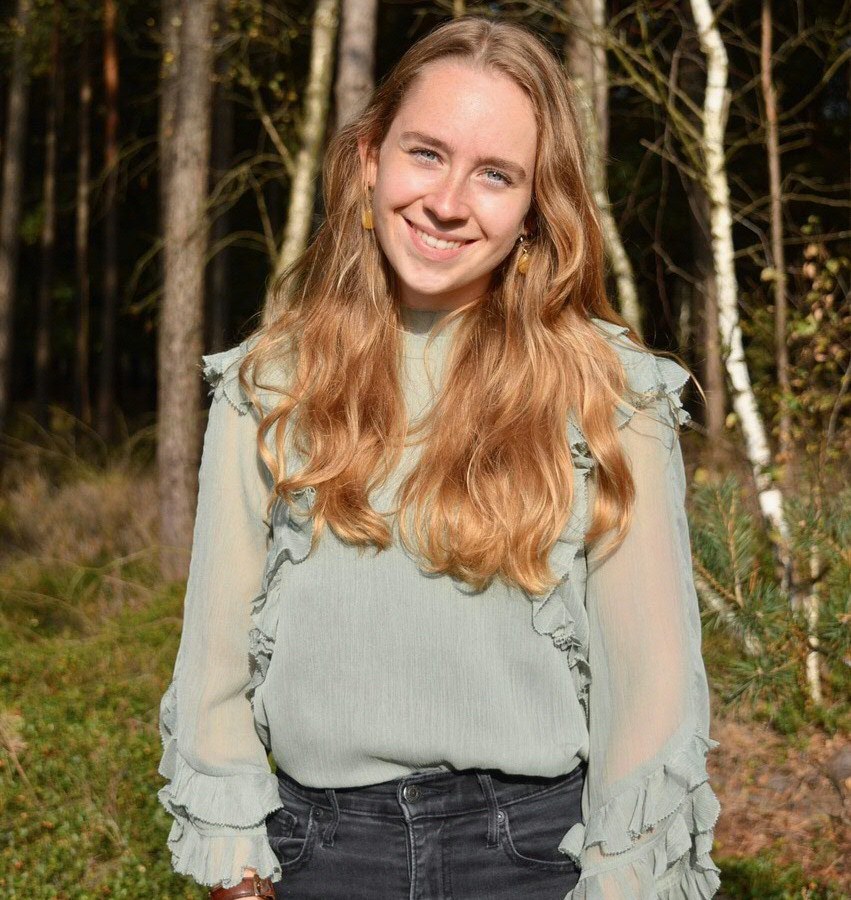
Ben je gefascineerd door kunstwerken, architectuur of cultuurlandschappen van vroeger en nu? Ben jij nieuwsgierig naar de betekenis, geschiedenis en impact van kunst? Dan is dit de opleiding die je zoekt.
De opleiding Kunstgeschiedenis in Groningen is uniek omdat zij beeldende kunst, stedenbouw- en architectuurgeschiedenis en landschapsgeschiedenis combineert en de relaties tussen kunstwerk, stad en landschap bestudeert. Onze bachelor biedt een combinatie van historische, theoretische en praktijkgerichte vakken, waarbij ons internationale docententeam nauw samenwerkt met experts in de praktijk. Zo maak je van meet af aan kennis met het beroepenveld. Kunsthistorici bestuderen kunst ter plekke, daarom ga je op excursie naar een grote Europese kunstmetropool en daarnaast zijn er vele kleine excursies in Nederland.
Na de bachelor kun je de masteropleiding Kunst- en Cultuurwetenschappen volgen. Je specialiseert je dan in jouw aandachtsgebied. Je kunt kiezen uit de volgende mastertracks:
In het eerste jaar maak je kennis met de hoofdwerken uit de kunstgeschiedenis, van de klassieke oudheid tot Rembrandt, Michelangelo tot Mondriaan, en Warhol tot Ai Weiwei. Van gotische kerken tot Rietveld en Rem Koolhaas, van Italiaanse tuinen tot het Nederlandse polderlandschap.
| Semesters | ||||
|---|---|---|---|---|
| VakkenVakkencatalogus > | 1a | 1b | 2a | 2b |
| Beyond Antiquity: Architecture 400-1400 (5 EC) | ||||
| Beyond Antiquity: Visual Arts 400-1400 (5 EC) | ||||
| Seeing and Knowing: Visual Analysis & Iconography (5 EC) | ||||
| Paint to Pixel: Artist's Materials & Techniques Through the Ages (5 EC) | ||||
| Towards Modernity: Architecture 1400-1800 (5 EC) | ||||
| Towards Modernity: Visual Arts 1400-1800 (5 EC) | ||||
| European Gardens and Parks (5 EC) | ||||
| Reality Contested: Visual Arts 1800-1914 (5 EC) | ||||
| Style & Modernity: Architecture & Urbanism 1800-1914 (5 EC) | ||||
| Blurring Boundaries: Architecture & Urbanism 1914-now (5 EC) | ||||
| Blurring Boundaries in Arts 1914-now (5 EC) | ||||
| European Cultural Metropole Excursion (5 EC) | ||||
Het tweede jaar heeft een tweeledige insteek: enerzijds verdiep je de kennis die je hebt opgedaan in het eerste jaar door in te zoomen op bepaalde onderwerpen, zoals hedendaagse kunst, het ontwerp van landschappen, architectuurtheorie of Italiaanse Renaissance kunst.
Anderzijds dagen we je uit om dat wat je geleerd hebt in een bredere, interdisciplinaire context te plaatsen met vakken als “Art Now”, “Art & Environment”, “Architecture, Nature & Enlightenment”, "Art & Institutions”, “Art & Architecture's Global Potentials” en "Cultural Heritage in Art, Architecture and Landscapes"
| Semesters | ||||
|---|---|---|---|---|
| VakkenVakkencatalogus > | 1a | 1b | 2a | 2b |
| Architecture, City & Freedom (5 EC) | ||||
| Cultural Heritage in Art, Architecture and Landscape (5 EC) | ||||
| Renaissance Art: Individual/Institution (5 EC) | ||||
| Art & Institutions (5 EC) | ||||
| Art Now (5 EC) | ||||
| Designed Landscapes 1800-present (5 EC) | ||||
| Art & Architecture's Global Potentials (5 EC) | ||||
| Art and Architecture of the Netherlands (5 EC) | ||||
| European Country House Landscapes (5 EC) | ||||
| Architecture, Nature & Enlightenment (5 EC) | ||||
| Art & Environment (5 EC) | ||||
| Perspectives in Art Theory (5 EC) | ||||
Het eerste semester van het derde jaar staat in het teken van je minor. Wij bevelen een buitenlandminor aan bij één van onze partneruniversiteiten. Maar je kunt ook een carrièregerichte minor met stage kiezen of een facultaire minor.
Daarna ga je op buitenlandse excursie naar een stad als Berlijn, Londen, Wenen of Brussel en sluit je je studie af met een bachelorscriptie over een onderwerp naar jouw keuze. Tijdens de studie wordt continu aandacht besteed aan de vaardigheden die je nodig hebt voor je toekomstige baan.
| Semesters | ||||
|---|---|---|---|---|
| VakkenVakkencatalogus > | 1a | 1b | 2a | 2b |
| Minor (30 EC) | ||||
| Practice Lab: Art/ Architecture/ Landscape (5 EC) | ||||
| Research Skills: Art/ Architecture/ Landscape (5 EC) | ||||
| BA Thesis (10 EC) | ||||
| Excursion Art & Architecture (10 EC, keuzevak) | ||||
| Excursion Landscape (10 EC, keuzevak) | ||||
Let op: hierboven staat het programma van het huidige collegejaar (2025-2026). Per 2026-2027 wijzigt het vakkenaanbod van deze opleiding. In het najaar van 2025 wordt hierover meer bekend.
| Programma-opties |
|---|
| Moderne en Hedendaagse Kunst (specialisatie) |
| Oude Beeldende Kunst (specialisatie) |
| Architectuur- en stedenbouwgeschiedenis (specialisatie) |
| Landschapsgeschiedenis (specialisatie) |
| Minoren (minor) Het vijfde semester (eerste semester jaar 3) besteed je aan je minor: een pakket samenhangende vakken dat toekomstgericht is. Het bereidt je voor op een vervolg in een mastertrack of op de arbeidsmarkt. Kies uit een careerminor, buitenlandminor, universitaire minor of facultaire minor. |
| University of Groningen Honours College (honoursprogramma) Het Honours College biedt talentvolle en gemotiveerde studenten de kans meer uit zichzelf te halen. Dat doe je door het volgen van een extra (honours)programma van 30 studiepunten naast je reguliere bacheloropleiding van 180 studiepunten, en door tal van andere activiteiten die je samen met honoursstudenten van andere opleidingen onderneemt en organiseert. Ontwikkeling van talent en eigen initiatief zijn de uitgangspunten van het honoursprogramma van de RUG. |
Kunstgeschiedenis is een internationale discipline. Al tijdens je bachelorstudie kun je stage lopen of vakken volgen in het buitenland. Bijvoorbeeld bij één van onze partneruniversiteiten in Gent, Leuven, Parijs, Berlijn, Hamburg, Keulen, Münster, Rome, Bern en Birmingham.
If you have passed the VWO (pre-university education) exam in English, you satisfy the language requirement.
If you have passed the VWO (pre-university education) exam in English, you satisfy the language requirement.
If you have passed the VWO (pre-university education) exam in English, you satisfy the language requirement.
If you have passed the VWO (pre-university education) exam in English, you satisfy the language requirement.
Language requirement English: Minimum requirement of TOEFL iBT 90 (with a minimum of 21 on all items), or IELTS 6.5 (with a minimum of 6 on all items) or Cambridge C1 Advanced or C2 Proficiency with a minimum score of 180. For more information, see: https://www.rug.nl/let/studeren-bij-ons/bachelor/aanmelding-en-inschrijving/language-requirements-ba
De opleiding verzorgt matching. Deelname is optioneel. Het advies is niet bindend.
De Faculteit der Letteren gaat er van uit dat jij, via een bezoek aan de Open dagen, deelname aan een Eén Dag student en/of aan een Webklas, jezelf goed hebt voorbereid op de opleiding van jouw keuze. Op basis van deze voorlichtingsactiviteiten bepaal jijzelf of je goed matcht met de opleiding.
Vragen over matching bij de Faculteit der Letteren? Hier kun je verdere informatie vinden: www.rug.nl/matching
| Type student | Deadline | Start opleiding |
|---|---|---|
| Nederlandse studenten | 01 mei 2026 | 01 september 2026 |
| EU/EEA studenten | 01 mei 2026 | 01 september 2026 |
| non-EU/EEA studenten | 01 mei 2026 | 01 september 2026 |
The Faculty of Arts believes students can decide for themselves whether they match with their chosen programme based on the available Bachelor's programme information, by visiting the Open Days, and by participating in a Webclass and/ or Student for a Day. If you are unable to attend one of these activities, a final opportunity for matching is to contact one of the students of the programme in June.
If you have any further questions about matching, check out: www.rug.nl/matching
| Specifieke eisen | Extra informatie |
|---|---|
| vooropleiding |
A Dutch VWO diploma, a German Abitur, an International Baccalaureate diploma, a European Baccalaureate or another diploma that is sufficient for acceptance to a Dutch university. For other VWO-equivalent qualifications, see: https://www.rug.nl/education/application-enrolment-tuition-fees/admission/procedures/application-informatie/with-non-dutch-diploma/entry-requirements/bachelor-entry-requirements/vwo-equivalent-qualifications. Students with a Dutch 'hbo-propedeuse' diploma also need to meet the language requirements mentioned below. |
| overige toelatingseisen |
Language requirement English: Minimum requirement of TOEFL iBT 90 (with a minimum of 21 on all items), or IELTS 6.5 (with a minimum of 6 on all items) or Cambridge C1 Advanced or C2 Proficiency with a minimum score of 180. |
| Type student | Deadline | Start opleiding |
|---|---|---|
| Nederlandse studenten | 01 mei 2026 | 01 september 2026 |
| EU/EEA studenten | 01 mei 2026 | 01 september 2026 |
| non-EU/EEA studenten | 01 mei 2026 | 01 september 2026 |
Als je je universitaire opleiding voort wilt zetten door een master te volgen, zoals de meeste studenten doen, zijn er allerlei verschillende vervolgopleidingen waar je uit kunt kiezen. Master opleidingen die direct aansluiten op de BA Kunstgeschiedenis zijn:
Kunst en architectuur zijn van groot belang voor de samenleving. Afhankelijk van je specialisatie, master en eigen interesses zijn er veel mogelijkheden. Afgestudeerde kunst-, architectuur- en landschapshistorici werken dan ook in uiteenlopende beroepen.
Na een afgeronde studie Kunstgeschiedenis ben je, afhankelijk van je specialisatie, kunsthistoricus, architectuurhistoricus of landschapshistoricus. Het woord 'specialisatie' is betrekkelijk: je hebt met je bachelortitel hoe dan ook een veelzijdige opleiding achter de rug, met veel kennis van kunstwerken, architectuur, stedenbouw, hun makers en ontwerpers, hun opdrachtgevers, hun werkveld, de praktijk en het publiek. De banen en werkzaamheden zijn heel verschillend. Afgestudeerden werken vanouds in musea, ze verzorgen de collecties, maken tentoonstellingen, maken educatieve programma's. Of ze werken in de media, voor kunstprogramma's, kunstkritiek of ze werken bij een uitgeverij. Ook gemeentelijke, provinciale of rijksdiensten hebben plaatsen waar kunst- of architectuurhistorici werken, in beleidsfuncties of uitvoerend, bijvoorbeeld bij de monumentenzorg. In de laatste jaren is er veel aandacht gekomen voor cultuurhistorisch erfgoed en zijn maatschappelijke betekenis (cultuurtoerisme). Daar zijn mensen nodig die kunst, monumenten en historisch landschap - of combinaties daarvan - op een aansprekende manier in allerlei producties of presentaties naar voren kunnen brengen.
De term 'wetenschappelijk onderwijs' zegt het al: aan een universiteit zijn onderwijs en onderzoek altijd nauw met elkaar verbonden. Alle hoogleraren en bijna alle docenten waarvan je college krijgt doen ook onderzoek in hun vakgebied. Het onderwijs dat je krijgt is dus deels gebaseerd op het lopende onderzoek aan de faculteit.
Bekijk hier onze experts en hun onderzoek.

Ciao a tutti! My name is Alessandra Gugliandolo, I am 20 years old, and I come from the warm and beautiful Sicily. I am a third-year BA Art History student and I decided to dedicate the first semester of this last bachelor year to the Anthropology minor. In addition to my love for art, I am obsessed with languages, and I use every available occasion to learn something new about a new culture. I love anything related to theatre and musicals and I myself for many years was part of a choir and a musical theatre group! I consider my time on stage among the best moments of my life. As for my hobbies, I like reading, drawing, and playing the ukulele. This last activity specifically reminds me of my sister, whom I wholeheartedly love. I care for animals and nature, that is also why I enjoy going on walks in the forest nearby my house here in Groningen as it allows me to be in contact with them. Of course no, I won’t kill that spider for you!
I realized I wanted to study art history at university when, in high school, I was the only one actively taking notes and engaging in conversations with the teacher during the art history lessons. I was always eager to talk about art in my assignments and in front of my classmates. I tried to listen to my heart and desires and observed how I spontaneously behaved in class. Sometimes the right answers are simpler and closer to us than we expect them to be. From that moment on, I felt like nothing interested me more than art, in all its expressions, and it was then clear in my head: I wanted to study art history at the university. The beauty of this academic field lies in its ability to deepen our understanding of human history since all art is a reflection of its time and its respective values, beliefs, and customs. Moreover, it enhances our critical thinking skills as we are constantly required to analyze works with careful observation and compare each one of them with examples from all kinds of cultural backgrounds. Apart from the appreciation of artistic skill and technique, every artwork becomes the mirror of a story yet to be discovered: the story of thousands of lives, of an array of cultures, which inevitably encourages a profound appreciation for diversity and a broader understanding of the world and those who lived, live, and will live in it.
Read more about Alessandra and why she chose to study Art History in Groningen!
Hi everyone! My name is Lia. I am 20 years old and I am the child of autumn. I am from Moldova and I deeply care about my background and roots. I am a second-year BA Art History student and I am also enrolled in the Honours College programme. I write poetry and read to soothe my soul, and visit local museums every time I travel. I love Pilates and I walk a lot because it helps me relax. Last but not least, I prefer sunflowers over roses.
The personalised approach of this programme develops your understanding of human society and culture, whilst shaping your critical analysis and perspective on art, architecture, and landscapes. It covers a broad historical background and helps you understand the chronological development of art. At the same time, the variety of courses, from ‘Beyond Antiquity’ to ‘Art Now,’ provide socio-political commentary on historical events that have shaped humanity. The courses cover a wide range of topics and methodologies that provide a framework for your approach to art history. If you are not sure about your specific field of interest, the programme will help you find which particular region, time period, or movement your wish to specialise in. Whenever someone asks me ‘Why do you study Art History?’, I remember a quote from ‘Dead Poets Society’ that says, ‘Medicine, law, business, engineering, these are all noble pursuits and necessary to sustain life. But poetry, beauty, romance, love, these are what we stay alive for.’

Hi! I am Marina and by the time you read this, I wil have received my Bachelor’s diploma in Art History. I will now continue my studies as a Master’s student of Art History, specializing in Curatorial Studies at the University of Groningen. Being a Russian student abroad and having passion for art, culture and architecture, I have an open outlook on the world around me, full of new knowledge and adventure. As a student ambassador, I would like to give you any information and welcome you to Groningen!
Since my teenage years, I have known that my future academic and work interests would lay mainly in the field of art history. From a personal perspective, I believe I have found a way to connect my goals and interests with a professional career. Art History is a fascinating discipline that opens the door to endless areas of knowledge, where one can find their true calling. Completing an Art History degree does not only mean that you have a great basis for understanding the field of arts and culture, but also that you are skilled in critical analysis and creative thinking. Ranging from writing about art and power in the Medici family or the history of Islamic pottery, to researching an emerging artistic collective or collaborating with contemporary artists in interdisciplinary projects – the topics are endless and give you a space to explore.

Hoi! Ik ben Mattanja en ik ben 21 jaar oud. Ik zit nu in mijn derde jaar van de studie Kunstgeschiedenis. Naast mijn studie schrijf ik graag, ben ik actief bij The Green Office en maak ik veel muziek.
Mijn studiekeuze was een lang en moeilijk proces. Ik zat op de HAVO en vond het lastig om te kiezen tussen de hbo en universiteit. Uiteindelijk ben ik twee jaar VWO gaan doen, waarna ik heb besloten om toch naar de universiteit te gaan. Op de middelbare school waren kunst en geschiedenis mijn favoriete vakken. Ik houd veel van het schrijven van verhalen, en op hun eigen manier vertellen kunstwerken ook verhalen. Ik raakte geboeid door de kunsten en zodoende zat ik op een gegeven moment in de collegezaal bij de open dag voor Kunstgeschiedenis in Groningen.
Alsnog twijfelde ik nog erg lang over mijn studiekeuze, aangezien kunstgeschiedenis mij interessant leek, maar ook erg beperkt. Ik kwam er echter tijdens de meeloopdag al snel achter dat de studie helemaal niet beperkt is. Kunstgeschiedenis aan de RUG heeft een heel brede visie op de kunsten; zo leer je veel over architectuur en landschapsinrichting naast de vakken over beeldende kunst. Dit zorgt voor een divers en uniek programma.
Zoals eerder gezegd, twijfelde ik op de middelbare school heel erg tussen hbo en universiteit: het praktische van een hbo-opleiding sprak me ook aan. Het leuke aan de studie Kunstgeschiedenis is dat je de theorie die je leert, ook in praktijk kunt brengen. Zo zijn er lessen in samenwerking met de kunstacademie Minerva en ga je regelmatig op excursie. Nog een bijkomend voordeel van de opleiding is dat je een volgende stedentrip je vrienden of familie rondleiden langs alle kerken, stadhuizen en musea. Zo pas je de gestudeerde stof constant toe in de praktijk en kun je fungeren als een gratis stadsgids!
Zit je op het vwo en wil je graag weten hoe dat is, studeren? De opleiding Kunstgeschiedenis biedt een webklas aan! Een webklas is een door de RUG gemaakte cursus in Brightspace (een elektronische leeromgeving) voor scholieren uit 5 en 6 vwo. Je kunt in zo'n cursus in tien studielasturen kennismaken met Kunstgeschiedenis door teksten te lezen, opdrachten te maken en met elkaar en de docent te discussiëren.
Interesse? Meld je dan aan voor de webklas.